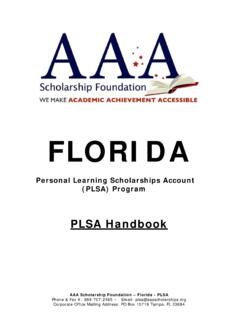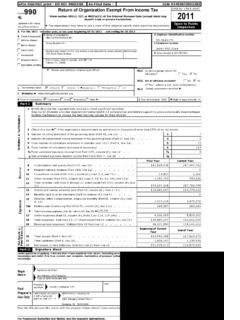Transcription of Facilitator Guide - Step UP! Program
1 A Prosocial Behavior/Bystander Intervention Program for students Facilitator Guide 4th Edition Presented by: The University of Arizona Life Skills Program in Partnership with the NCAA. step UP! Introduction The 5 Decision Making Steps 1. Notice the Event 2. Interpret the Event as a Problem/Emergency 3. Assume Personal Responsibility 4. Know How To Help 5. Implement the Help - step Up! Other Factors that Affect Helping 1. Perspective Taking 2. Obedience to Authority/Perceived Authority Strategies for Effective Helping Scenarios/Practical Applications 1. Academics 2. Alcohol 3. Alcohol Poisoning 4.
2 Anger Issues 5. Depression/Suicide Ideation 6. Discrimination 7. Disordered Eating 8. Gambling 9. Hazing 10. Relationship Abuse/Violence 11. Sexual Assault Note: For other topics please see the step UP! website at A Prosocial Behavior/Bystander Intervention Program for students Facilitator Guide 4th Edition Created by: Becky Bell The University of Arizona Life Skills Program In Partnership with the NCAA. III step UP! Facilitator Guide Copyright 2008. 2008 The Arizona Board of Regents for The University of Arizona. All rights reserved. No part of this publication, nor any of the Program materials, may be modified, reproduced, stored in a retrieval system or transmitted in any form or by any means, electronic, mechanical or otherwise, without expressed prior permission from the Copyright owner.
3 Rights for the videos have been purchased from Dateline NBC and cannot be duplicated without permission. Requests for reproduction of any portion should be addressed to: The University of Arizona , Life Skills Program (520) 621-5339. IV step UP! Facilitator Guide Contents A. Introduction 1. step UP! Presentation Outline 5. B. PowerPoint Presentation 7. C. Strategies for Effective Helping The Model 68. Emergency Helping 68. Non-Emergency Helping 69. The 5 Point Formula/Sample Script 69. Within Your Group 71. When Dealing with High Emotion 71. How to Increase Helping 71. The 5 Intervention Styles 72.
4 Making Value Based Decisions 74. D. Scenarios with Considerations, Action Steps and resources Before You Begin 78. Academics 81. Alcohol 87. Alcohol Poisoning 91. Anger Issues 95. Depression/Suicide Ideation 99. Discrimination 103. Disordered Eating 109. Gambling 115. Hazing 119. Relationship Abuse/Violence 123. Sexual Assault 127. E. Appendices A Activities 136. B Scenario Worksheet 138. C step UP! Definitions 142. D The Dovidio Summary 143. E The Kitty Genovese Story 144. F The Asch Conformity Study 145. G The Milgram Experiment 147. V step UP! Facilitator Guide Courage is the first of human qualities because it is the quality which guarantees all others.
5 Winston Churchill VI step UP! Facilitator Guide Section A. Introduction The University of Arizona Life Skills Program , along with national leading experts, has developed a new initiative for students called step UP! Be a Leader, Make a Difference. step UP! is a prosocial behavior and bystander intervention Program that educates students to be proactive in helping others. Teaching people about the determinants of prosocial behavior makes them more aware of why they sometimes don't help. As a result they are more likely to help in the future. The goals of step UP! are to: Raise awareness of helping behaviors.
6 Increase motivation to help. Develop skills and confidence when responding to problems or concerns. Ensure the safety and well-being of yourself and others. Most problematic behaviors on college campuses involve bystanders. step UP! training provides a framework explaining the bystander effect, reviews relevant research and teaches skills for intervening successfully using the 5 Decision Making Steps, and the Model (Safe; Early; Effective). A survey at three Universities (University of Arizona, University of California, Riverside and University of Virginia), revealed that student-athletes are encountering multiple situations where bystander intervention would be appropriate including, among other things, alcohol abuse, hazing, sexual assault/relationship abuse and discrimination.
7 Almost 90% stated a problem could have been avoided with intervention and up to 85% indicated they would like to learn skills to intervene! Although there are some references to student athletes (and the pilot study) periodically in this Guide we have tried to make it as general as possible. Although research exists with regard to bystander behavior in general, there had not been an interdisciplinary, comprehensive bystander intervention Program for NCAA member institutions. We considered the implications for creating such a Program and were excited by the possibilities. It is our sincere hope that this training will help students learn strategies and techniques to intervene both directly and indirectly in both emergency and non-emergency situations.
8 Doing so can lead to fewer problems as well as improve campus climate and student life. This Guide is not meant to cover all possible scenarios or variables, nor is it meant to train you as a counselor. It is imperative that the students feel free to have an open, honest, and non-judgmental discussion about the material presented and to consider their ability to make a significant difference. It is also vital for students AND facilitators to set aside any biases, history, or preconceived notions before beginning the training and to continue identifying any that may arise during the training.
9 1 step UP! Facilitator Guide General Suggestions 1. It is important that you be acquainted with the material and the videos before you begin. If you are interested, the pilot study, pre/posts tests, Program evaluation along with other resources are on the step UP! website: under Facilitators/Resource Library. 2. The group should feel comfortable and safe with one another. Consider doing an icebreaker before you begin the training (See Appendix A, Activities). 3. Challenge your students to think critically and openly about the material presented. Allow each step UP! member to be a critical evaluator and to express thoughts and feelings.
10 For those of you presenting to specific demographics (Athletes, Greeks, RA's etc.) feel free to insert slides, graphics, data, etc. that is specific to that group. 4. Although bystander intervention can occur in everyday, public situations, please note to the group that the focus of this training is primarily for students to intervene with other students . Also consider reviewing basic counseling techniques with students . 5. Be flexible enough to take discussion in different directions see where students lead you. 6. Be prepared for emotional responses and reactions. Refer to the Resources at the end of each topic if referral to a professional is necessary.









